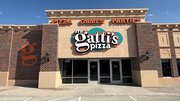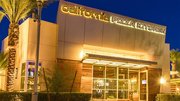Blog
Putting the brakes on pizza lease problems before they start
It's not just "what you don't know" that can hurt a pizza operator in a leasing arrangement, but also what you don't anticipate. Here, the two men behind "The Lease Coach," run down eight great ways to avoid lease operating cost clause problems before they burn your brand and you.

March 6, 2019
There's something kind of sneaky hidden in the black-and-white of many pizza brands' leases that can ultimately take a huge slice out of these businesses' pies. We speak here of operating cost clauses, many of which are designed to protect and boost profits for the landlord, but not necessarily his or her pizza-making tenant.
Pizza brand operators can attempt to get a limit placed on increases in their annual operating costs. But the landlord who agrees to such limits may be tough to find. Still, you can protect yourself from these unanticipated and equally unwelcome expenses by taking time upfront to find the ones in your agreement that could truly wreak havoc with your bottom line. By working to modify or delete such potentially problematic clauses upfront, you could save your business a lot of cost down the line.
Here are eight prime areas to pay special attention to:
- Administration fees: If pizza tenants are paying the property manager's salary through operating costs, but the landlord still adds a 15 percent administration fee to Common Area Maintenance, or CAM costs, this can be considered double-billing for essentially the same service.
- Landlord operating cost reports to tenants: Many landlords provide only superficial operating cost information to tenants, which is not only insufficient for the tenant's needs, but often sent out in an untimely manner.
- Occupancy levels and occupancy costs: A lease agreement may state that operating costs are charged back to tenants, assuming that the property is 95-100 percent leased and occupied. This means that if the property is only 70 percent occupied, tenants carry 100 percent of the operating costs.
- Proportionate share misallocations: Pizza brands located on the main floors of properties will rarely or never have customers who use the building's elevator or escalator. In this case, should you, as the tenant, be required to pay the same proportionate share for elevator and/or escalator maintenance? Just because a tenant occupies a certain percentage of the building doesn't mean they're equally financially responsible for all operating costs as well.
- Reconciliation billing: The industry norm is for landlords to budget future operating costs and then reconcile once per year. Pizza tenants can get walloped with unexpected reconciliation statements from landlords, often with only 15 days to pay or be found in default. Tenants should negotiate with the landlord in these instances to permit repayment of overages over a period of time, like six months.
- Tenant audit rights: The landlord has a fiduciary responsibility for accountability to tenants for money collected from, and spent on behalf, of tenants. As a result, the lease for a pizza restaurant should include tenant audit rights that permit operators to examine the landlord's books.
- Underestimated budgets on new properties: Pizza brands that lease commercial space in a new building, would do well to remember that operating costs can jump 25 to 50 percent after the first or second year. In fact, landlords have been known to under-budget operating costs on new properties to boost their pre-leasing program.
- Utilities: Electricity, natural gas and water may be provided by the landlord or separately metered for each tenant. In some cases, the landlord may have one meter on the property and a check meter on each tenant's unit to measure consumption.
If you're paying the utility company for your store's usage, you'll have your own meter. But note that in many cases, landlords bill utilities back to tenants in operating costs. For this reason and others, smart tenants will make sure they know well in advance what their lease agreements specify on this topic to avoid potential double- billing for the same utility.
Commercial lease consultants, Dale Willerton and Jeff Grandfield, are collectively, The Lease Coach, as well as speakers and co-authors of the book, "Negotiating Commercial Leases & Renewals for Dummies. "
Photo: iStock
 ChatGPT
ChatGPT Grok
Grok Perplexity
Perplexity Claude
Claude








